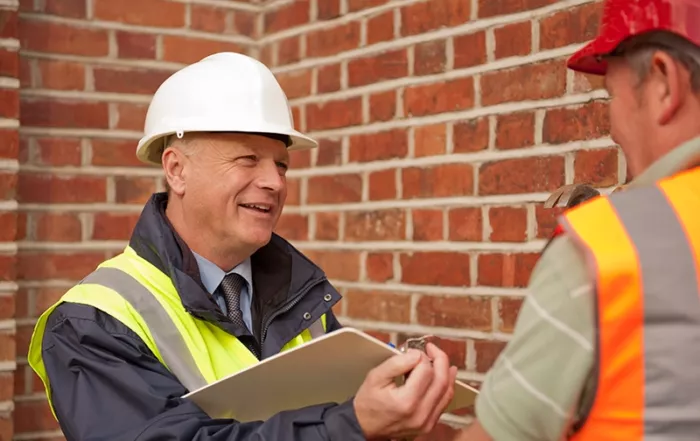Library Archive
Awaab’s Law Consultation
Awaab’s Law Consultation
The Social Housing Regulation Act 2023 included provisions for the introduction of Awaab’s Law which aims to protect residents from health and safety risks in their homes by requiring landlords to investigate and fix reported health hazards within specified timeframes. The consultation seeks views on how Awaab’s Law should be implemented, specifically regarding time scales for investigations and carrying out repairs.
The consultation proposes the introduction of a new legal obligation to investigate hazards within 14 calendar days with a requirement to start work on remedying identified hazards within 7 days. Where emergency works are identified, these must be actioned within 24 hours. If the property cannot be made safe within the specified timescales, the registered provider must offer to arrange for the occupant(s) to stay in suitable alternative accommodation until it is safe to return. These new rules will form part of a tenancy agreement, so that tenants can hold landlords to account by law if they fail to respond to issues and provide a decent home.
The consultation proposes that Awaab’s Law should take into account the 29 health and safety hazards set out in the Housing Health and Safety Rating System (HHSRS) but must additionally take into account the vulnerabilities of those living in the household.
Hazards in scope are those that pose a significant risk to the health or safety of the actual residents of the property, therefore, identifying whether a repair meets the threshold of Awaab’s Law will not necessarily match current routine or emergency repair definitions. Where residents have vulnerabilities, routine repairs will potentially fall within the scope of Awaab’s Law.
The consultation sets out new higher expectations in terms of record keeping around repairs. There is also a new requirement to provide residents with a written summary of findings within 48 hours of the investigation setting out if a hazard was found along with details of the follow up response and timescales as well as how to contact the landlord with any queries.
Cost Implications
The consultation makes an assessment of the cost implications for landlords of implementing Awaab’s Law. It is assumed that for the most part implementation costs will be relatively low as any works required are not a new burden but reflect existing landlord responsibilities and therefore shouldn’t cost more than under current arrangements. In practice, the introduction of tight timescales and increased demand for some specialist contractors are likely to increase costs in some areas.
It is estimated that the cost of preparing and sending written summaries to residents following property inspections will cost local authority registered providers around £5.1m annually, but the assumption is that automation will significantly reduce this figure over time. In addition, a small one-off element of transition costs is identified relating to staff training and familiarisation with the new arrangements (amounting to a total of a total of £513,000 across the local authority sector overall).
This is an 8-week consultation closing on 5th March 2024.
CWAG Newsletter – January 2024
This Update includes the following
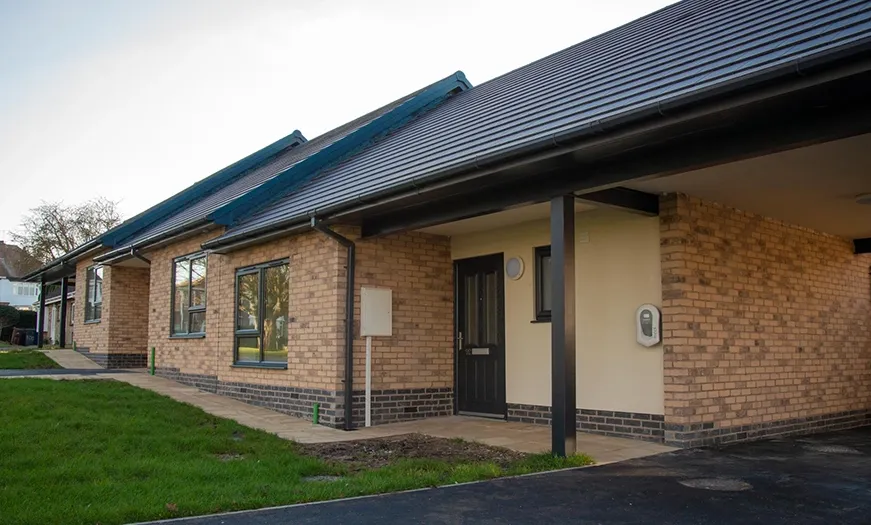
The ALMO Model: first results from Tenant Satisfaction Measures
A new report commissioned by the National Federation of ALMOs reviews initial TSM performance using data collected by Housemark during the first six months of surveys from April to September 2023. Data was provided by 19 ALMOs and comparisons made with data from 53 local authorities with direct management.
The analysis shows that at the median point ALMOs outperformed local authorities on all TSMs and housing management metrics analysed. They also perform better on value for money, with an average overall cost per property of £2537; this is £81 lower than the direct local authority management average.
The headline finding is that on average the better performance and higher tenant satisfaction delivered by an ALMO costs no more than direct delivery of housing services by a local authority. In many areas, the ALMO model costs less and offers better value for money.
Report Findings
Overall satisfaction
Whilst it should be noted that overall satisfaction is declining for all types of landlords – the data indicates that it has declined less for ALMOs than for local authorities generally. The TSM data so far shows that 76 per cent of ALMO tenants are satisfied with their landlord’s services overall, compared to the local authority median of 65 per cent. Housemark also looked back at STAR data for the past 5 years highlighting that overall satisfaction among ALMO tenants has been consistently higher – between six and 11 percentage points – compared to local authorities generally.

Repairs TSMs
ALMOs perform well in this area. On average, they complete a higher proportion of non-emergency repairs within target timescale at 91 per cent, compared to a local authority median of 85 per cent; and a higher percentage of emergency repairs within target timescale (99 per cent versus 95 per cent). Satisfaction with repairs is 12 percentage points higher.
Complaints handling
On average 88 per cent of stage one complaints and 97 per cent of stage two complaints are completed within the Ombudsman’s target timescales. This compares favourably with performance in directly managed local authority stock (74 per cent and 70 per cent). Average satisfaction with ALMOs‘ complaints handling is also 13 percentage points higher.
Respectful and helpful engagement
ALMOs achieve a higher level of satisfaction across all three TSMs in the tenant engagement category.
Neighbourhood Management
ALMOs score almost eight percentage points higher on making ‘a positive contribution to the neighbourhood’ than local authorities generally. They also score 11 percentage points higher for satisfaction with the landlord’s approach to handling anti-social behaviour.
Value for Money
ALMOs deliver better value for money across housing management, responsive repairs, void works, and major works services. The average cost per property for ALMO services is £2,537 compared to £2,618 for local authorities.
Awaab’s Law Consultation
The Social Housing Regulation Act 2023 included provisions for the introduction of Awaab’s Law which aims to protect residents from health and safety risks in their homes by requiring landlords to investigate and fix reported health hazards within specified timeframes. The consultation seeks views on how Awaab’s Law should be implemented, specifically regarding time scales for investigations and carrying out repairs.
The consultation proposes the introduction of a new legal obligation to investigate hazards within 14 calendar days with a requirement to start work on remedying identified hazards within 7 days. Where emergency works are identified, these must be actioned within 24 hours. If the property cannot be made safe within the specified timescales, the registered provider must offer to arrange for the occupant(s) to stay in suitable alternative accommodation until it is safe to return. These new rules will form part of a tenancy agreement, so that tenants can hold landlords to account by law if they fail to respond to issues and provide a decent home.
The consultation proposes that Awaab’s Law should take into account the 29 health and safety hazards set out in the Housing Health and Safety Rating System (HHSRS) but must additionally take into account the vulnerabilities of those living in the household.
Hazards in scope are those that pose a significant risk to the health or safety of the actual residents of the property, therefore, identifying whether a repair meets the threshold of Awaab’s Law will not necessarily match current routine or emergency repair definitions. Where residents have vulnerabilities, routine repairs will potentially fall within the scope of Awaab’s Law.
The consultation sets out new higher expectations in terms of record keeping around repairs. There is also a new requirement to provide residents with a written summary of findings within 48 hours of the investigation setting out if a hazard was found along with details of the follow up response and timescales as well as how to contact the landlord with any queries.
Cost Implications
The consultation makes an assessment of the cost implications for landlords of implementing Awaab’s Law. It is assumed that for the most part implementation costs will be relatively low as any works required are not a new burden but reflect existing landlord responsibilities and therefore shouldn’t cost more than under current arrangements. In practice, the introduction of tight timescales and increased demand for some specialist contractors are likely to increase costs in some areas.
It is estimated that the cost of preparing and sending written summaries to residents following property inspections will cost local authority registered providers around £5.1m annually, but the assumption is that automation will significantly reduce this figure over time. In addition, a small one-off element of transition costs is identified relating to staff training and familiarisation with the new arrangements (amounting to a total of a total of £513,000 across the local authority sector overall).
This is an 8-week consultation closing on 5th March 2024.

Recent Publications
Building Safety ebulletin: 15 January 2024 (govdelivery.com)
This regular bulletin provides updates on current building safety issues and developments within the Building Safety Regulator. This edition includes information on high rise registration and monitoring arrangements for the building control profession. There is also a list of on-line building safety webinars that are available to watch on demand.
Two Nations: The State of Poverty in the UK – Centre for Social Justice (December 2023)
This interim report considers the challenges involved in improving the lives of the poorest communities in the UK focussing on the root causes of poverty and the limitations of current social policy. It brings together evidence from over 250 frontline charities, social enterprises and local organisations working with people in the toughest situations.
Diary Date - CWAG General Meeting
The next CWAG General Meeting will we held on Teams on Tuesday 27th February 2024 (10.00 – 12.00). The meeting will focus on Tenant Satisfaction Measures (TSMs) and preparing for the forthcoming changes to regulation.
The programme so far includes the following:
- Presentation from Jonathan Cox ( Director of Data and Business Intelligence at Housemark) who will be discussing learning to date from TSMs with a particular focus on councils with ALMOs.
- CWAG Executive Member Lucy Heath will be sharing her experience and feedback from the RSH pilot inspection of Shropshire Council (and its ALMO) which took place as part of round 3 of the inspection pilot programme at the end of last year.
Knowing our Homes Survey
The Knowing our Homes survey is part of a programme of work developed by the NHF in response to the Better Social Housing Review which aims to establish a shared, standardised approach for gathering and using information about the condition of social homes and about the residents who live in them. This should also help social landlords to meet new requirements emerging through the Consumer Standards which set higher expectations for how landlords gather and use information about their homes and their residents.
Although the Better Social Housing Review was initially focused on the housing association sector, the local authority sector has committed to support the work emerging from the review to make sure there is a shared approach across the whole social housing sector. The Local Government Association (LGA), Association of Retained Council Housing (ARCH), National Federation of ALMOs (NFA), and Councils with ALMOs Group (CWAG) are all working together to achieve this and make sure the whole council housing sector is represented.
A survey was sent out to stock retaining local authorities, and local authorities with ALMOs in October 2023. This is the first stage of the work which identifies how local authorities are currently gathering and using data. 49 local authorities responded to the survey (around 30 per cent of local authorities with housing stock), managing around 599,000 social and affordable local authority homes across England (around 38 per cent of the total stock).
Snapshot of Survey Findings
- Three quarters of respondents to our survey have made significant changes to the way they monitor and work to improve the condition of the homes they manage within the last year. This includes, for example:
- Reviewing damp and mould policies and procedures, implementing training, creating new teams.
- Changing stock condition programmes, for example moving to a 100% survey, reducing the length of the rolling survey or undertaking a full assessment of stock condition.
- Reviewing and developing asset management strategies.
- Investing in new asset management or property information management systems. Developing processes to cross-reference data sources (e.g. property archetype, repair and cases of damp and mould) to better direct resources and identify issues.
- Reviewing processes for identifying stock condition between surveys, for example adding requirements to the gas servicing contract to identify property condition.
- Increasing staffing resources for quality assurance, stock condition and data management.
- Accessing funding for thermal improvement/ decarbonisation work to support quality of homes.
- Introducing tenancy audits, or changes in frequency or type of audit.
- The majority of respondent have – or are moving towards – a rolling stock condition survey where they survey 100 per cent of their homes. This will support them to the meet the requirements within the Regulator’s Consumer Standards to have ‘an accurate, up to date and evidenced understanding of the condition of their homes that reliably informs the provision of good quality, well maintained and safe homes for tenants.’ The information gathered as part of these surveys differs across respondents, but around 40 per cent gather information on energy efficiency of properties (e.g. RdSAP).
- The majority of respondents report having a process for proactively checking the condition of homes between stock condition surveys. This includes, for example, through tenancy checks or audits, and asking staff who visit the home to report issues. One of the key areas of work for many is making sure IT systems can effectively record all the information about a home and the people who live in it, and that data quality is good. Around a third of respondents would recommend the IT or data systems they would use, suggesting that there is work to be done in this area.
- Having a good knowledge of the people who live in homes is a key requirement in the new Consumer Standards; to make sure that services are tailored and equitably delivered. Nearly all respondents in our survey collect, store and retain data about tenants. This includes, for example, information on household make-up, relevant health issues or disabilities, and communication needs or preferences. Nine out of 10 respondents actively update the information they hold on tenants, for example after a repair or during a tenancy audit. Members are actively working on the processes that they use to make sure they can demonstrate they are equitably delivering services.
- The collection of data on tenants is an area that members are working on, and where good practice sharing would be beneficial; particularly thinking about GDPR principles, how (and what) data is stored and kept up-to-date, and how it is used. We will continue to work with the National Housing Federation and their members to share good practice in this area.
CWAG Newsletter – December 2023
This Update includes the following

Knowing Our Homes – Local Authority Housing Survey
The Knowing our Homes survey is part of a programme of work developed by the NHF in response to the Better Social Housing Review which aims to establish a shared, standardised approach for gathering and using information about the condition of social homes and about the residents who live in them. This should also help social landlords to meet new requirements emerging through the Consumer Standards which set higher expectations for how landlords gather and use information about their homes and their residents.
Although the Better Social Housing Review was initially focused on the housing association sector, the local authority sector has committed to support the work emerging from the review to make sure there is a shared approach across the whole social housing sector. The Local Government Association (LGA), Association of Retained Council Housing (ARCH), National Federation of ALMOs (NFA), and Councils with ALMOs Group (CWAG) are all working together to achieve this and make sure the whole council housing sector is represented.
A survey was sent out to stock retaining local authorities, and local authorities with ALMOs in October 2023. This is the first stage of the work which identifies how local authorities are currently gathering and using data. 49 local authorities responded to the survey (around 30 per cent of local authorities with housing stock), managing around 599,000 social and affordable local authority homes across England (around 38 per cent of the total stock).
Snapshot of Survey Findings
- Three quarters of respondents to our survey have made significant changes to the way they monitor and work to improve the condition of the homes they manage within the last year. This includes, for example:
-
- Reviewing damp and mould policies and procedures, implementing training, creating new teams.
- Changing stock condition programmes, for example moving to a 100% survey, reducing the length of the rolling survey or undertaking a full assessment of stock condition.
- Reviewing and developing asset management strategies.
- Investing in new asset management or property information management systems. Developing processes to cross-reference data sources (e.g. property archetype, repair and cases of damp and mould) to better direct resources and identify issues.
- Reviewing processes for identifying stock condition between surveys, for example adding requirements to the gas servicing contract to identify property condition.
- Increasing staffing resources for quality assurance, stock condition and data management.
- Accessing funding for thermal improvement/ decarbonisation work to support quality of homes.
- Introducing tenancy audits, or changes in frequency or type of audit.
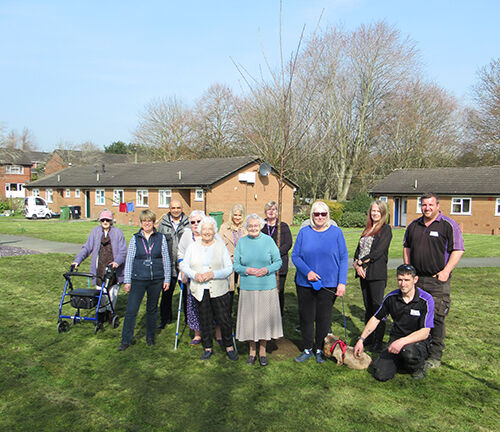
- The majority of respondent have – or are moving towards – a rolling stock condition survey where they survey 100 per cent of their homes. This will support them to the meet the requirements within the Regulator’s Consumer Standards to have ‘an accurate, up to date and evidenced understanding of the condition of their homes that reliably informs the provision of good quality, well maintained and safe homes for tenants.’ The information gathered as part of these surveys differs across respondents, but around 40 per cent gather information on energy efficiency of properties (e.g. RdSAP).
- The majority of respondents report having a process for proactively checking the condition of homes between stock condition surveys. This includes, for example, through tenancy checks or audits, and asking staff who visit the home to report issues. One of the key areas of work for many is making sure IT systems can effectively record all the information about a home and the people who live in it, and that data quality is good. Around a third of respondents would recommend the IT or data systems they would use, suggesting that there is work to be done in this area.
- Having a good knowledge of the people who live in homes is a key requirement in the new Consumer Standards; to make sure that services are tailored and equitably delivered. Nearly all respondents in our survey collect, store and retain data about tenants. This includes, for example, information on household make-up, relevant health issues or disabilities, and communication needs or preferences. Nine out of 10 respondents actively update the information they hold on tenants, for example after a repair or during a tenancy audit. Members are actively working on the processes that they use to make sure they can demonstrate they are equitably delivering services.
- The collection of data on tenants is an area that members are working on, and where good practice sharing would be beneficial; particularly thinking about GDPR principles, how (and what) data is stored and kept up-to-date, and how it is used. We will continue to work with the National Housing Federation and their members to share good practice in this area.
CWAG Consultation Responses
Provision of information to tenants: Direction to the Social Housing Regulator on tenants’ rights and complaints
CWAG has responded to the DLUHC consultation on a new direction to the Social Housing Regulator on tenants’ rights and complaints. Whilst we agree that landlords should be providing this information to their tenants, in our view the proposals duplicate arrangements already set out in the RSH Consumer Standards and Ombudsman Statutory Complaints Handling Code. Overlaying a further set of very similar requirements and additional reporting that duplicate these arrangements will add to the complexity, regulatory burden and costs whilst providing little in the way of additional or new information for tenants.
Ombudsman Complaints Handling Code 2023
CWAG also responded to the Ombudsman Complaints Handling Code consultation 2023. The new statutory Complaints Handling Code forms part of wider changes to social housing regulation set out in the Social Housing (Regulation)Act 2023. Whilst the code is broadly similar to the existing code, our consultation response flagged up some issues including changes to response times and the need for clarity around the interface of these arrangements with those of other regulators.
Recent Publications
ALMOs top half year local authority TSM results – Housemark research
An interesting piece of research by Housemark on behalf of the National Federation of ALMOs makes very positive reading for anyone interested in the effectiveness of the ALMO management model. ALMO performance against all 22 TSMs at the half-year point in September 2023 was favourable when compared to local authorities generally. In addition, the report also looked at the data for former ALMOs where management is now back ‘in house’ suggesting that ‘housing management performance settles into that less favourable cost and performance pattern of stock retained local authorities’.
Housing Ombudsman Report – Insight on service charges and the Ombudsman’s jurisdiction – Published December 2023
This latest insight report considers complaints relating to service charges. The report sets out guidance around the complaints the Ombudsman might consider and those which are within the remit of the First Tier Tribunal or Tribunal and Leasehold Advisory Service (LEASE).
Whilst the level and cost of service charges is outside the Ombudsman’s jurisdiction, the way the charge has been calculated would fall within the Ombudsman’s remit. The report highlights that the importance of ensuring charges are as set out in tenancy agreements and leases, as opposed to what it is assumed is in these agreements.
Other issues include fairness and transparency, ensure that any redress is applied to everyone affected, not just those who have been party to the complaint. Cases involving measures such as non-disclosure agreements or pressure on residents to sign revised agreements are highlighted as unacceptable.
Where residents raise complaints about the standard of service, the onus will be on the landlord to demonstrate that the standard was of satisfactory quality for example through evidence of spot checks and monitoring.
Housing Ombudsman - Complaint Handling Failure Orders July – September 2023 (Published November 2023)
Given the increasing use of Complaint Failure Orders (CFOs) by the Housing Ombudsman, this report examining cases between July and September 2023 provides useful insights into current issues and complaints handling weaknesses in the sector.
In the three months under review there were 51 CFOs issued, the highest number ever issued in a single quarter. Of these 38 (74.5%) were type 1 relating to unreasonable delays by the landlord in accepting or progressing a complaint. 12 cases (23.5%) were type 2 involving unreasonable delays in providing information to the Ombudsman and 2 cases (4%) involved a failure by the landlord to comply with membership obligations of the Ombudsman scheme. In the same period, 14 landlords failed to comply with the requirements set out in the issued CFO.
Social Housing Partner Toolkit
This toolkit includes details of the latest phase in the Governments ‘Make things Right campaign which aims to ensure social housing tenants know their rights and how to make a complaint in terms of repairs, disabled adaptations and help with anti-social behaviour. The campaign seeks to address barriers which hold people back from raising issues with their landlord.
The ‘toolkit’ comprises a range of publicity materials and formats including posters, social media videos, leaflets, draft copy for use in newsletters and blogs as well as a briefing for use with staff working with people who live in social housing.
Diary Date Reminder - Finance and Business Planning Workshop
Steve Partridge – Savills Director of Housing Consultancy will be leading this event for finance officers and others with an interest in HRA strategy and business planning. The event is a free event that is open to CWAG members. To book a place, contact the CWAG Policy Officer.
CWAG Newsletter – November 2023
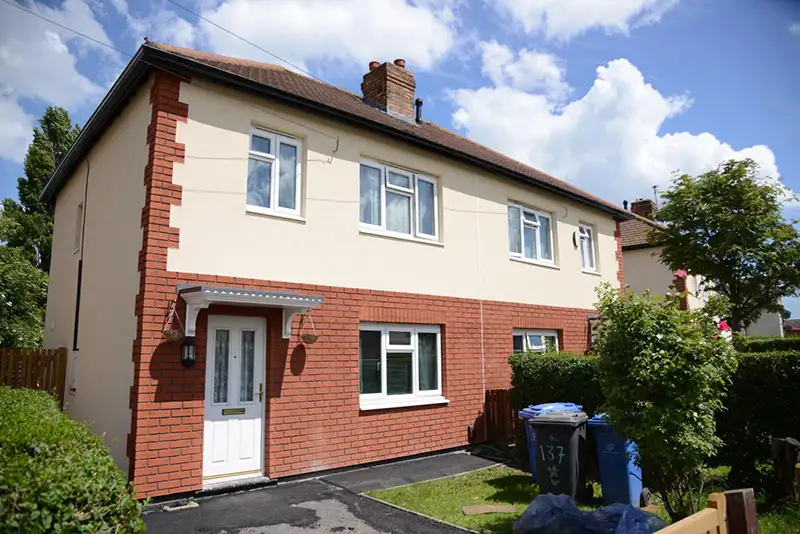
This Update includes the following
Renters Reform Bill Update
Government commitments to address issues in the private rented sector in England are facing further delays.
The Renters Reform Bill which was published in May 2023 included a number of measures set out in the 2022 White Paper ‘A fairer private rented sector’ as well as the 2019 Conservative Manifesto commitment to abolish Section 21 evictions in England. Although the legislation received its second reading in the House of Commons on 23rd October 2023, the ban on Section 21 evictions is likely to be significantly delayed as the Department for Levelling Up, Housing and Communities has announced that the ban cannot proceed until reforms to the court system have been put in place.
The Government stance appears to be in response to intensive lobbying by the National Residents Landlord Association (NRLA) concerned that other measures in the legislation, which are intended to strengthen landlords’ ability to evict tenants in breach of tenancy agreements, will be ineffective without legal reforms to speed up repossession hearings and tackle existing court backlogs.
In the meantime, the Renters Reform Bill will continue to be progressed and has now moved to the Committee Stage. An update on the Committee Stage is expected on 5th December 2023 but the legislative timetable beyond this is unclear. The Bill has been included in the legislative programme announced in the King’s Speech so will carry over into the next Parliamentary session.
It is possible that a number of other measures in the legislation will continue to be progressed in advance of the abolition of Section 21 evictions – for example arrangement allowing tenants the right to keep pets, proposals for a private rented sector Ombudsman and a mechanism for tenants to challenge unfair rent increases. However, tenure changes linked to the abolition of Section 21 are effectively stalled until improvements and reform of court processes have been implemented.
CWAG Response – RSH Consultation on changes to the fees regime
CWAG has submitted a response to the recent RSH consultation on fees. The consultation sets out proposals for a new charging regime to fully meet the costs of regulation as set out in the Social Housing (Regulation) Act 2023. The proposals involve levying a charge for each social home regulated and the fee rate for local authority landlords is estimated at between £7 and £8 per property.
The CWAG response highlighted concerns about the high level of fees proposed. These represent a significant additional financial burden on housing revenue account resources which will impact business plans and ultimately need to be funded from tenants rents. We also argue that there is a lack of transparency around how the fee level has been set, how it will be uplifted in the future and how value for money will be demonstrated.
Joint letter to the Building Safety Regulator
CWAG has joined up with the National Federation of ALMOS (NFA) and Association of Retained Council Housing (ARCH) to raise concerns with the Building Safety Regulator (BSR) around how complaints in high rise social housing will be handled as well as issues around the interface with the Housing Ombudsman Statutory Complaints Handling Code. As a group we are seeking a meeting to discuss concerns and clarify arrangements.
Recent Publications
Sector Risk Profile, RSH – 14th November 2023
The RSH has published the 2023 Sector Risk Profile an annual overview of the main risks facing social housing providers. This year the report focusses on a number macro-economic risks and preparing for stronger consumer regulation.
The sector faces a challenging economic environment with persistently high inflation, a tight labour market, supply pressures and contractor failures and rental income constrained by the 7% cap in 1023/24.
The new regulatory regime from April next year requires an increased focus on the quality of social housing, and the services landlords provide to tenants. In preparing for these changes providers need to be ensuring up-to -date and robust tenant data that assesses the presence of serious hazards in tenant’s homes , including damp and mould.

Fire Safety Reform Bulletin No 3, Home Office – 6th November 2023
This Bulletin includes information on new requirements for Responsible Persons, feedback on the risk assessor survey and details of the new guide for responsible persons along with a summary of other available guidance.
New Homes Fact Sheets, Homes England – 2nd November 2023
Homes England has published a series of 10 fact sheets designed to support conversations with local communities about the need for new homes and development. Topics include how new homes are planned, including transport infrastructure and services such as schools and healthcare.
New Homes Facts Sheets and Capacity Analysis Tool launched – GOV.UK (www.gov.uk)
LGA Submission: Autumn Statement 2023
Ahead of the Autumn Statement next week, the LGA has set out the case for additional resources for councils facing unprecedented financial pressures. Councils are facing ongoing inflationary and pay pressures alongside spiking demand and market challenges in areas such as homelessness and temporary accommodation. Also, financial resilience is strained following a 27% real-terms reduction in core spending power since 2010/11.
RSH Social Housing Stock and Rents statistics 2022/23
The RSH has published the latest batch of statistics on social housing stock and rents in England. There are a number of reports available including a briefing on local authority housing stock.
2023_LARP-briefing-note_FINAL_V1.0_.pdf (publishing.service.gov.uk)
Housing Ombudsman Damp and Mould Update
Two years after the publication of its Spotlight Report on damp and mould ‘It’s not lifestyle’, the Housing Ombudsman has released an update on this area of complaints handling. Whilst the number of complaints relating to damp and mould has continued to rise, with 5,398 complaints in this category in 2022/23, this increase in part reflects landlords making it easier for tenants to report issues. The update includes a number of recent cases, both positive and negative. Key themes continue to include references by landlords to residents lifestyle and poor record keeping by landlords hampering responses.
Diary Date – Finance and Business Planning Meeting – Thursday 18th January 2024
Steve Partridge – Savills Director of Housing Consultancy will be leading this event for finance officers and others with an interest in HRA strategy and business planning. The event is a free event that is open to CWAG members. To book a place, contact the CWAG Policy Officer.
CWAG Newsletter – October 2023
This Update includes the following
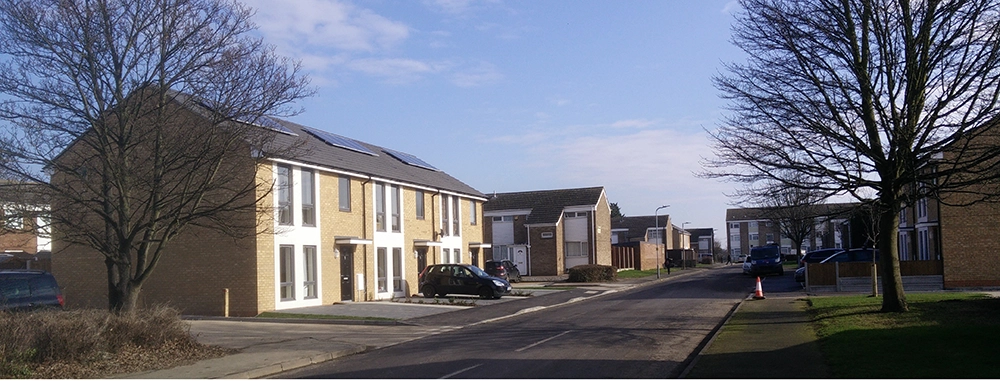
CWAG Annual General Meeting
This year’s AGM focussed on preparing councils for the regulatory and professionalisation changes introduced by the Social Housing Regulation Act.
Lydia Dlaboha from the Housing Quality Network introduced the session with a topical discussion on ‘Getting ready for inspection and the new regime’
Whilst preparations for most councils are well under way it was useful to discuss some of the issues and challenges specific to councils with ALMOs. With a much greater spotlight on the council as landlord and on elected members, new arrangements need to be put in place whilst not undermining the work of ALMO Boards.
Councils will need to be able to have assurance that they are complying with the consumer standards. This requires that councils have good data on their homes and the tenants who live in them as well as ensuring that services are developed with the input of tenants.
Tenant Satisfaction Measures (TSMs) are a key tool in the new arrangements and landlords need to drill down into the ‘how’ and ‘why’ of what TSMs are telling them – in particular identifying whether there are specific concerns in certain communities and demographics. The Regulator will be keen to understand how landlords are using TSM data and what plans they have for improvement.
The discussion also picked up the potential for tensions where councillors make decisions based on wider objectives that are not necessarily aligned with the interests specific to social tenants. In these circumstances much will depend on the narrative and how the council presents its case.
Our second speaker Charlotte Hilliard from the Department of Levelling Up Housing and Communities (DLUHC) spoke on the topic Driving Professionalism in social housing: Implementing the Conduct and Competence Standards. This set out the background to the current professionalisation agenda alongside current thinking around what the new regulations are likely to mean in practice.
The Social Housing Regulation Bill was amended at a late stage to introduce measures to enable the Regulator of Social Housing to introduce new Competence and Conduct Standards, which will require landlords to ensure that all staff have the appropriate behaviours, skills, knowledge, and experience. Linked to this senior housing managers and senior housing executives (defined in the Act) will be required to have, or be working towards, a suitable housing management qualification.
The key criteria determining which job roles will be deemed to be in covered by the legislation are that:
- The post is concerned with managing a service in a customer facing role
- The subject properties are regulated by the RSH
Relevant staff who are not already qualified will be required to enrol on and complete an appropriate qualification within specified timescales, which will be set out following consultation.
The discussion at the AGM highlighted differences in the way people are currently interpreting the legislation with implications for exactly which posts are likely to fall within the scope of the legislation. These issues will need to be further explored and clarified as detail arrangements are worked up. A two-stage consultation process will take place prior to the arrangements coming into force:
- Stage 1 – Statutory consultation on a draft Direction to the Regulator – this will take place over the next few months,
- Stage 2 – Once formally directed the Regulator will consult on its approach to setting the requirements within the standards.
Regulator announces plans for a national tenants’ survey
The Regulator of Social Housing (RSH) has announced that it plans to carry out a National Tenant Survey to better understand how satisfied social housing tenants are with their landlord’s service.
The move coincides with work all social landlords are currently undertaking to collect Tenant Satisfaction Measures (TSMs) from their tenants. The RSH’s one-off tenant survey will be in addition to landlords’ TSM surveys and will use the same questions.
The aim is to provide the RSH with a robust and independent benchmark when reviewing TSM results submitted by individual landlords. The survey will also provide information about levels of satisfaction among different groups of tenants.
It is hoped that the RSH National Tenants Survey will provide deeper understanding and additional insights on tenant satisfaction levels throughout the sector.

Consultation – Awaab’s Law – Direction to the Social Housing Regulator
This autumn sees a series of consultations linked to implementing measures in the Social Housing Regulation Act. The latest relates to the section of the legislation known as Awaab’s Law which introduced new requirements around the information social landlords will be required to provide to their tenants.
As a first stage the government is consulting on a new Direction requiring the Social Housing Regulator to set standards for the provision of information to tenants in the following areas:
- making complaints
- tenants’ rights
- relevant regulatory requirements
The government has carried out an initial assessment of the likely costs involved which are estimated at around £1.8m per year for local authority landlords. The consultation indicates that new burdens funding will be available to local authorities to cover this. This is an 8-week consultation ending on 22nd November 2023.
Following this consultation, the Regulator will formally consult on its proposals for implementing the Direction.The government is also planning to consult in the near future on directions relating to the quality of accommodation, access to information, tenure and competency and conduct.
Housing Ombudsman Changes
The Housing Ombudsman has gained considerable new powers as part of changes set out in the Social Housing Regulation Act 2023. This expanded authority enables the Ombudsman to require landlords to go beyond the scope of individual complaints and seek to address wider issues.
Following approval by the Secretary of State of a revised Scheme, the Housing Ombudsman can order a landlord to evaluate a particular policy or practice to prevent service failure being repeated. Previously, these types of orders would have only been recommendations, which the landlord was not duty bound to act upon.
The Complaints Handling Code will also become a statutory scheme and the Ombudsman is currently consulting on this. Whilst no major changes are proposed to the Code itself, there is a new duty for the Housing Ombudsman to monitor compliance. The consultation outlines proposals for wider compliance monitoring including the use of Tenant Satisfaction Measures (TSMs). The Ombudsman will also be able to intervene with a landlord on the Code even where a complaint has not been received.
The consultation closes on 23rd November 2023 with the aim is for the Code to become statutory from 1 April 2024.
Recent Publications
Tenant Satisfaction Measures – Frequently asked questions – September 2023
This document brings together examples of specific recurring queries sent to the Regulator as providers begin to collect their first set of TSM data for 2023/24. It is a fairly technical document intended for practitioners involved interpreting the guidance and collecting the data. Download document
New Fire Safety Guidance
New fire safety laws came into force on 1st October 2023 and the home office has published new fire safety guidance as follows:
- People with duties under fire safety laws (29th September 2023) is intended to assist those with duties under fire safety legislation in England to comply with the legislation.
- Fire Safety Order: enforcement and sanctions for non-compliance (29th September 2023) explains how the Regulatory Reform (Fire Safety) Order 2005 (as amended) is enforced and advises of the sanctions that are available to Enforcing Authorities in the case of compliance failures.
Design For All – A Place to Call Home
This University of London report by a panel of academics and researchers including from the London School of Hygiene & Tropical Medicine and the Royal Free London NHS Foundation Trust proposes a radical and transformative national housing plan to address the UK’s housing crisis. The report sets out the wider economic benefits of building more social and affordable housing. Modelling a scenario around building 72,000 additional social and affordable homes per year which could save the government an estimated £1.5 billion per year whilst delivering major social and economic benefits. Download report


